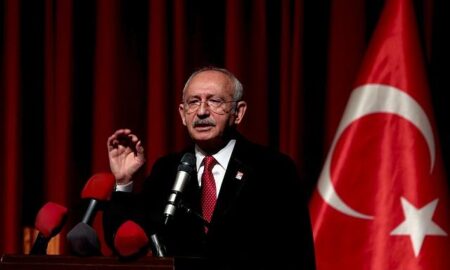In a bold move to overhaul FranceŌĆÖs struggling education system, President Emmanuel Macron has unveiled a comprehensive plan aimed at ensuring no child is left behind. The initiative seeks to address longstanding inequalities and improve academic outcomes across the country, signaling a renewed commitment to education reform. As challenges such as regional disparities and resource shortages persist, MacronŌĆÖs proposals have sparked widespread debate among educators, parents, and policymakers. This article delves into the key elements of the presidentŌĆÖs strategy and the potential impact on FranceŌĆÖs future generations.
MacronŌĆÖs Education Overhaul Targets Inequality and Access
President Emmanuel MacronŌĆÖs latest wave of reforms aims to dismantle long-standing barriers in the French education system, emphasizing a more equitable foundation from early schooling through higher education. Central to the overhaul is a focus on reducing disparities that disproportionately affect students from underprivileged neighborhoods. Measures include reallocating funding to schools in socioeconomically disadvantaged areas, enhancing teacher training targeted at inclusive pedagogy, and increasing access to extracurricular support programs. This shift signals a move away from traditional uniformity toward tailored solutions that recognize varying student needs.
Key pillars of the reform spotlight the following initiatives:
- Smaller class sizes in priority zones to boost personalized learning
- Expanded early childhood education, ensuring foundational skills are nurtured from an earlier age
- Strengthened pathways for vocational training and apprenticeships to diversify future opportunities
- Improved digital resources to bridge the technology gap between urban and rural schools
| Reform Component | Target Group | Expected Outcome |
|---|---|---|
| Priority Education Zones | Students in disadvantaged neighborhoods | Reduction in achievement gaps |
| Teacher Development Programs | Educators nationwide | Enhanced inclusive teaching skills |
| Digital Resource Expansion | Rural and low-income schools | Improved accessibility to learning tools |
Addressing Teacher Shortages and Curriculum Modernization
To combat the persistent teacher shortages that have plagued France’s education system for years, Macron’s administration is implementing targeted recruitment and retention strategies. These include improved teacher salaries, comprehensive training programs, and incentives for educators willing to work in underprivileged or rural areas. By enhancing working conditions and fostering professional development, the government aims to stabilize the teaching workforce and raise educational standards nationwide.
Simultaneously, curriculum modernization is a cornerstone of the reform plan. The revised syllabus emphasizes digital literacy, critical thinking, and environmental awareness, reflecting global educational trends and future labor market demands. Efforts also focus on incorporating more multidisciplinary approaches and practical skills training, ensuring students are better prepared for both higher education and the evolving job market.
Innovative Programs to Support Underperforming Students
In an ambitious move to raise academic outcomes, Macron’s administration has launched a suite of targeted programs aimed at turning around the fortunes of underperforming students. Schools in the most challenging districts are receiving increased staffing with specialized tutors and counselors, ensuring personalized attention for those struggling to keep pace. These efforts are complemented by the introduction of adaptive learning technologies that tailor lessons to student needs, facilitating a more effective and engaging educational experience.
Key elements of this initiative include:
- Enhanced after-school support focusing on literacy and numeracy.
- Intensive training sessions for teachers on differentiated instruction techniques.
- Early intervention programs starting in primary schools to identify learning difficulties sooner.
- Community partnerships providing mentorship and extracurricular opportunities.
| Program | Target Group | Objective | Start Date |
|---|---|---|---|
| Focus Literacy | Grades 1-3 | Boost reading skills | Sep 2023 |
| Math Boost | Grades 4-6 | Improve numeracy | Oct 2023 |
| Teacher Training | All Grades | Enhance instructional methods | Aug 2023 |
| Mentorship Network | Middle school | Provide guidance and support | Jan 2024 |
Experts Recommend Increased Funding and Community Engagement
Addressing systemic issues in FranceŌĆÖs education system calls for more than policy revisionsŌĆöit demands substantial investment targeted at the early stages of learning and sustained community involvement. Experts have consistently highlighted the need to boost funding for schools in underprivileged areas, ensuring access to quality resources, trained educators, and modern infrastructure. This financial commitment is crucial to bridging the widening gap between urban and rural education standards, fostering equity across all regions.
Moreover, community engagement has emerged as a pivotal factor for successful reforms. Collaborative efforts between parents, local authorities, and educational institutions can create a supportive environment that empowers students and teachers alike. Initiatives such as neighborhood mentorship programs and regular feedback channels are already showing promise in pilot regions. Below is a concise breakdown of expert recommendations on funding allocation and community actions:
| Focus Area | Key Recommendations |
|---|---|
| Funding |
|
| Community Engagement |
|
To Wrap It Up
As President Emmanuel Macron pushes forward with his ambitious plan to overhaul FranceŌĆÖs education system, the coming months will be critical in determining whether these reforms can truly address long-standing disparities and improve outcomes for all students. With education at the heart of social mobility and national progress, the governmentŌĆÖs efforts to ensure that no child is left behind will be closely watched by educators, parents, and policy experts alike. The success or failure of these measures could have profound implications not only for FranceŌĆÖs schools but also for the future of its society.




